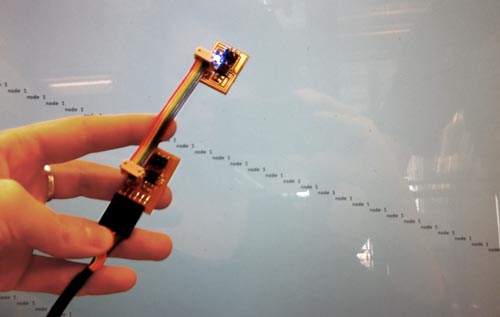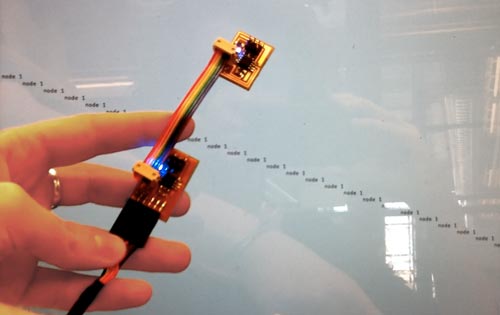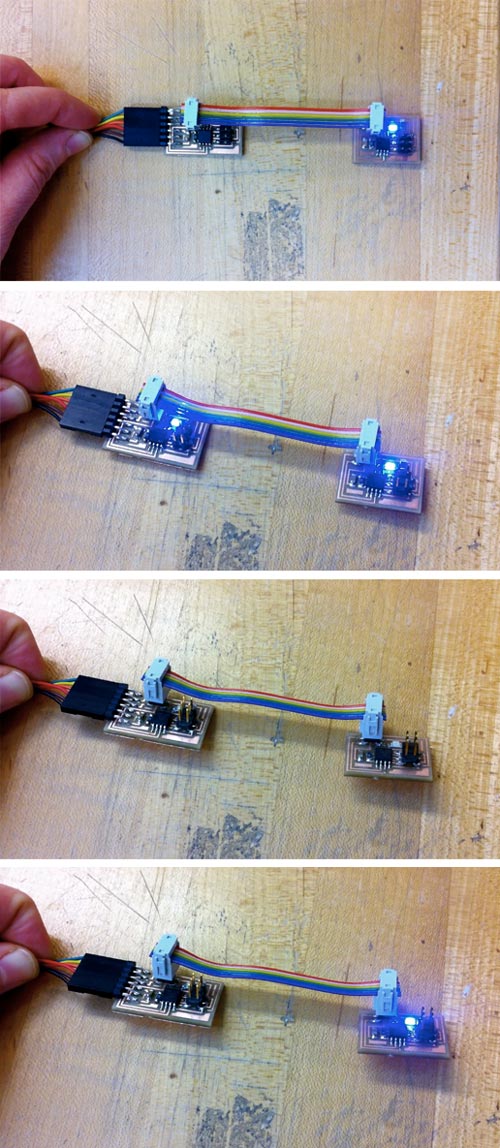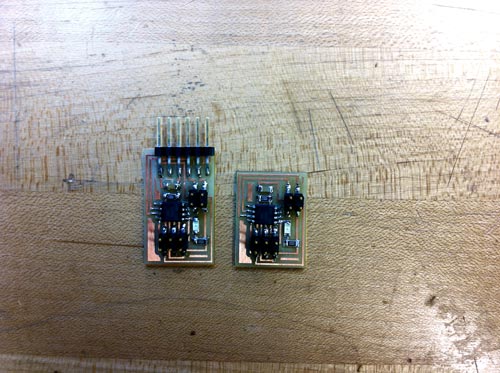
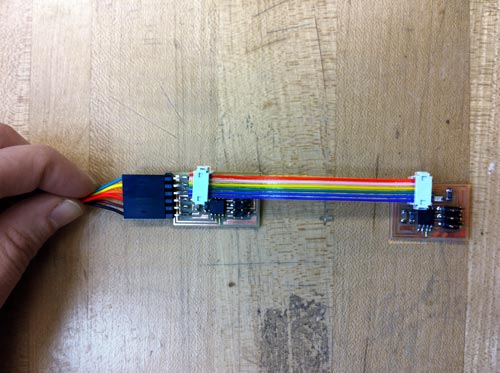
contact // irina chernyakova
1 [0912] FINAL PROJECT PROPOSAL 2 [0919] COMPUTER CONTROLLED CUTTING 3 [0926] ELECTRONICS PRODUCTION 4 [1003] COMPUTER CONTROLLED MACHINING 5 [1010] FINAL PROJECT UPDATE 6 [1017] MOLDING / CASTING / COMPOSITES 7 [1024] EMBEDDED PROGRAMMING 8 [1031] 3D SCANNING + PRINTING 9 [1107] INPUT DEVICES 10[1114] OUTPUT DEVICES 11[1121] INTERFACE + APPLICATION PROGRAMMING 12[1128] MECHANICAL + MACHINE DESIGN + FINAL PROJECT UPDATE 13[1205] NETWORKING + COMMUNICATIONS 14[1212] FINAL PROJECT DEVELOPMENT 15[1219] FINAL PRESENTATIONS
1 milling and stuffing
This
week we looked at how to make two boards communicate. Here one is the
bus, the other node. Given that its finals week, I split the work
with Theodora. We each milled and stuffed a board, then used our own
ISPs to practice programming. 

2 programming
Each
board has to be programmed through the ISP, using Neil's
make file. For each component, you have to open
the .C file,
and change
the Node ID from (0), to (1),
to (2), etc. You're giving each board a key or representative digit
so that the boards understand to which board it must send a
signal.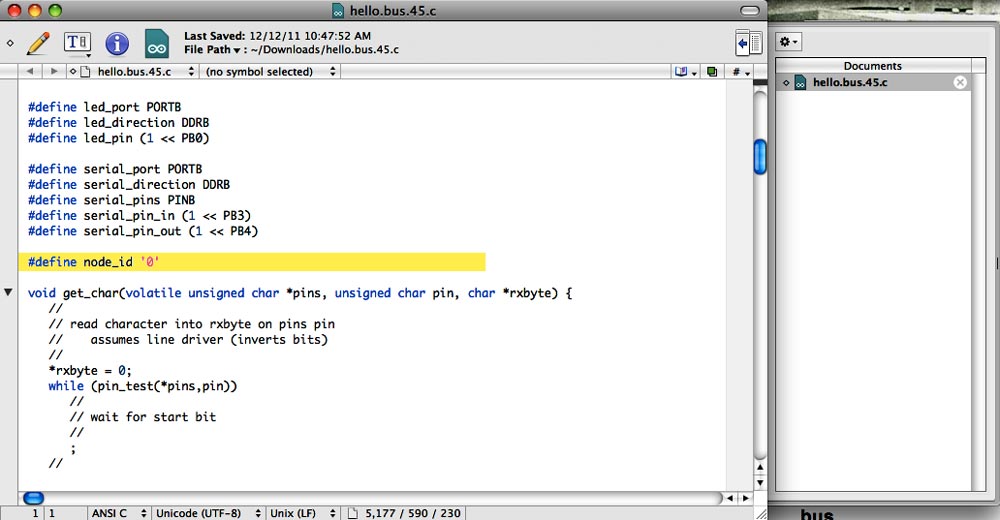
We
used Screen
through Terminal
to
test the communication between boards.
In terminal, type screen
/ dev/tty.u(baud rate). Then,
you can press the digits that correspond to each node and test
communication. There should be a time offset for the LEDs on two
boards. If they light up at the same time, there is probably a speed
issue...